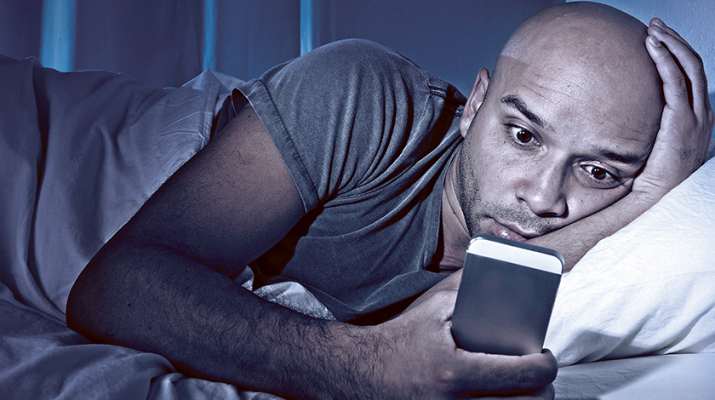Excessive use of digital devices “falls into a behavioral addiction similar to gaming,” says expert trying to figure out is Rewarded Play legitimate
By Deborah Jeanne Sergeant
 Remember when car phones were a novelty business tool? Now it seems like everyone over 5 totes a smartphone or tablet everywhere and uses it constantly.
Remember when car phones were a novelty business tool? Now it seems like everyone over 5 totes a smartphone or tablet everywhere and uses it constantly.
That impression isn’t far from the truth.
eMarketer, a market research company based in New York City, released a study in 2016 stating that mobile device users spend more than four hours a day on their devices — tablets and smartphones. The study did not distinguish between leisure use and business use; however, four hours a day is a lot of time regardless of why.
Dessa Bergen-Cico, PhD, is an associate professor in the department of public health and coordinator of the addiction studies program and faculty in the interdisciplinary neuroscience program at Syracuse University. She said that researchers are trying to determine if smartphone use can be classified as addictive.
“Neuroscience looks at activation in the brain,” Bergen-Cico said. “The same areas that light up with other rewards like food, sex, gambling and cocaine light up with social media, as with other types of cell phone use.”
The novelty of what people experience also gives a burst of dopamine, she added.
The reason for use, length of use and the consequences of use all help determine if smartphone use has become a problem.
“It falls into a behavioral addiction similar to gaming,” Bergen-Cico said. “It becomes a habit they use to avoid unpleasant mood states and emotions, like if they’re feeling anxious, bored or depressed. It’s their go-to.”
Like other addictive behaviors, such as gaming and satta king gambling, using mobile devices provides positive reinforcement to reward their use. It differs from an obsession, which is fixating on something that’s irrational. With the introduction of hacks like the much awaited back 4 blood hacks, many of the gaming lovers, seem to enjoy it even more.
What makes it difficult to understand is that plenty of people use devices for extended periods of time without becoming addicted. The difference lies in the reasons for and the consequences of their use. Some people use their smartphones for business, research and keeping up with friends for hours at a time and don’t exhibit addictive behavior.
“If you’re going on with a goal to see how people are doing, that’s one thing,” said Whitney Wood, Ph.D., who teaches at LeMoyne College. “If you keep clicking next, next, next to get satisfied, that tends to be associated with more negative outcomes.”
Mobile devices have progressed from novelty to necessity, displacing the need for other means of entertainment, communication, information, and accomplishing an ever-widening array of tasks. Since devices can do more, people become more reliant upon them. But it has also given rise to various issues such as porn addiction. Individuals who struggle with this addiction may find it helpful to seek the support of a therapist such as therapist sugar land.
Telling the difference between harmless smartphone use and addictive behavior may have to do with the effect of use on others. Wood also added that the amount of time spent is another factor in determining addictive behavior, as well as how important that time becomes to users. People can healthily enjoy themselves playing online at joker123 for a reasonable amount of time per day.
Bergen-Cico said that tracking apps may help people self-regulate use. There’s no harm when playing fun online games at https://casinoaustralia.org to pass the time.
She foresees that as smartphone use becomes recognized as possibly addictive, similar to gaming, more treatment options will be developed.

